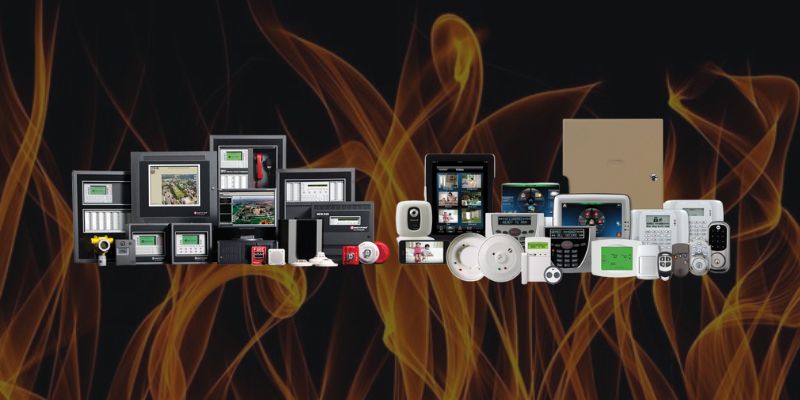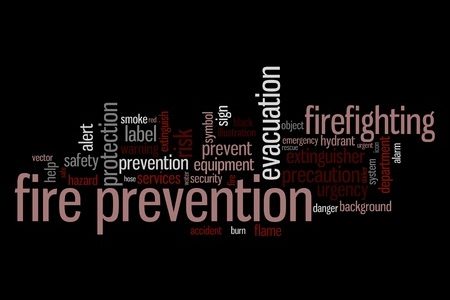People’s lives depend on the fire detection system you choose for your commercial property. Ensuring your system is effective, properly maintained, and has the vital elements needed to ensure your occupants and property are protected is crucial.
There are many components that make up an effective commercial fire alarm system, and their placement at the property is key to saving lives and decreasing property damage in case of a fire emergency.
Get A Quote

This article was published on August 5, 2016 and updated on September 6, 2023
Designing a Fire Detection System
Commercial fire detection systems are not one-size fits all investments. Many factors determine the type of protection your business needs, such as:
- Size of your commercial property
- Number of occupants
- The architecture of your building
- Local, state, and federal regulations
It is important that you consult with an experienced fire safety expert when designing your business’s fire detection system.
Key Components for a Fire Detection System
Many components are present to create a complete and effective fire detection system. Some components that should be included in your system include:
Fire Alarm Control Unit (FACU)
The purpose of this unit is to control all outputs while monitoring the inputs. The FACU will display a Trouble signal, Supervisory signal, or Alarm signal that will inform the building occupants and the monitoring station of the conditions in the building, whether it is a faulty system or smoke has been detected and an evacuation is needed.
This communication between the FACU and the monitoring station allows for the quick deployment of emergency services to be dispatched to the location.
Initiation Devices
The initiating devices include smoke and heat detectors, pressure switches, water flow switches, and anything else that notifies the fire alarm through a signal. Initiation devices are crucial because they are typically what alerts occupants to a fire emergency at a location.
Stable Power Supply
It is vital that your fire detection system has a reliable power source so it can continue to function during a power outage or any other emergency. Some fire detection systems run with a primary and secondary power supply, so talk with your fire safety expert on what options would work best for your business.
Notifications
All fire detection systems require notification devices that are used to alert building occupants of a fire emergency. These devices can include strobes, horns, or speakers that give audible commands to building occupants regarding fire emergency procedures.
Emergency Control Functions
The FACU can send signals to other building systems in order to close doors, disable elevators, and control the smoke control system. A relay and control circuit allows communication between the fire alarm and the emergency control functions, adding to the overall protection of your occupants and property.
24/7 Monitoring
Fire alarm monitoring services give peace of mind that your property is being looked after 24/7/365 so if a fire emergency occurs, quick dispatch of emergency personnel can help prevent loss of life and property damage. Other benefits of having monitoring services include a reduction in the number of false alarms, lower insurance premiums, and a reduction in injuries.
High Rise Security Systems, HRSS, with SMG Security Holdings, SMG understands the importance of protecting life and assets at your commercial property. We strive to deliver complete and integrated commercial fire safety solutions with customized system design, installation, maintenance, repairs, inspections, and 24/7/365 monitoring services.
HRSS/SMG is an industry leader, bringing more than 30 years of experience in commercial fire and life safety systems to the Chicagoland area. We offer top-quality UL-listed equipment and comprehensive services that can be tailored to fit the unique needs of your business. Contact us to learn about how we can help ensure all necessary components are included in your commercial fire detection system.



